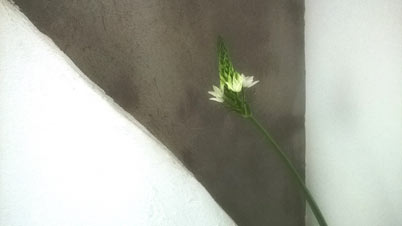Scores for Rest
" The fittest person is not the one who runs the fastest, but the one who has optimized their rest time." (Tony Schwartz) 
Most of us know the feeling, I suppose – the thrill of having no duties. Witnessing my colleagues though, it seems that most of us are never there. We are either overworked or unemployed – both of which can be very stressful states. There is rarely balance between rest and work. And hardly ever there is a moment when "everything" would be ready. Something gets done, but there's a list of other chores waiting. It is the nature of work, I suppose, but we cannot just wait that “everything gets done” before we give ourselves a break. So instead of the work itself, I thought of focusing for a moment on the gaps in between, the rest.
Many of us don't rest enough - but not because we wouldn't know of it. There is plenty of research about the negative causes of excess stress. Sport science tells us how our muscles recover and build strength during sleep and brain researchers underline the importance of having breaks from electrical devices and reduce stimulation for our nervous systems. For a balanced hormone production and healthy digestion, regular rest is fundamental. Without little breaks throughout the day we start to lose our ability to focus, which predisposes us to physical injury as well as a comprehensive burnout, a collapse of both our mental and physical systems.
Our western culture has reached a point where we could survive with working less. There is an abundance of food and shelter, and maybe not even enough jobs for everyone to work from eight to five. But instead of shortening the work days, and just enjoying doing less, something in our culture – in us, in the structures of what we live – pushes many of us to do more: to work harder, to study more, and to expertise and success in as many ways as possible. Whatever the reason – financial struggles, inspiration, pride, or pressure – overworking is a complex, well researched topic of which we know about. However we don't seem to really question our practice.
Some people say that the next trend in fitness is rest. Looking at the way of the world, I think that sounds like the best news I've heard for a while! Also considering the knowledge, especially the somatic practitioners, in our IDOCDE community have in this field; I think that we, as dance teachers, would have a lot to give in this topic. Rest doesn't necessarily mean doing nothing or merely sleeping. Rest and recovery can take various forms: calming down the nervous system by touch, by very slow and small movements or restorative poses, or even just by calming atmospheres of shared situations. Maybe this kind of collective rests could even catapult a societal change – in my fantasies it would not only relax the general attitude around work but even help our environment to recover from being overused – since with our maddening pace of working, we are not only exhausting ourselves but our mother Earth as well.
Physical recovery begins when you stop exercising. Muscle glycogen storages get replenished and the tiny tears in our muscles caused by the exercise get rebuilt - and this is what makes us stronger. Overtraining increases the risk of injuries, both acute and chronic. Exercise should be such that it is possible for us to recover from it and thus for us to become more resilient. But… What about the psychological side of rest then? To be able to rest, we need to accept that there is always something unfinished, and nevertheless it is important to let go and just be, or do something else for a while.
Of course, the world is not ready. However hard we work though, work will not get finished, I'm sure. And the harder we try the more likely we'll exhaust ourselves in the process. I believe, as we live in such hectic times, that it is necessary also to teach our dance students about healthy balance between work and rest. How to build sustainable practice that would not exhaust the body or the spirit, or any nature in and around us if possible? It might be that I am just talking to myself, but I am pretty sure I am not the only one struggling with this topic. How can we be good role models for our dance students, also in resting? What kind of working-resting strategies are you suggesting to your students – concsiously or not?
I invite you to share your best resting scores also on IDOCDE – but please don't stress about it! And for now, I hope that you have all planned some sweet summer breaks in your schedule, so that we can meet – recovered and replenished – in the 5th IDOCDE Symposium in Vienna, in July!
Ulla Mäkinen - April 2017
